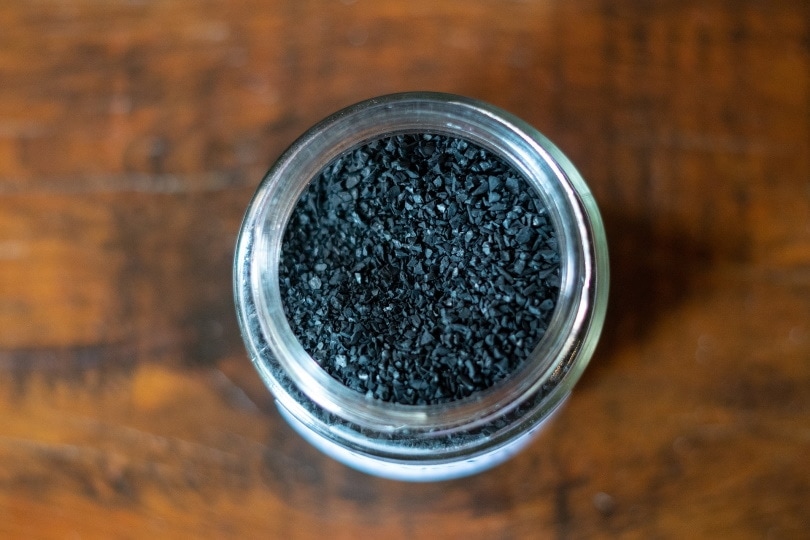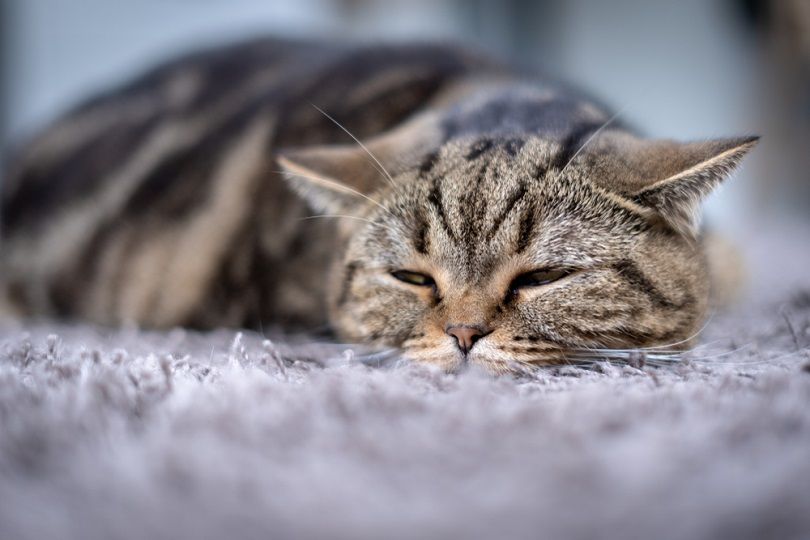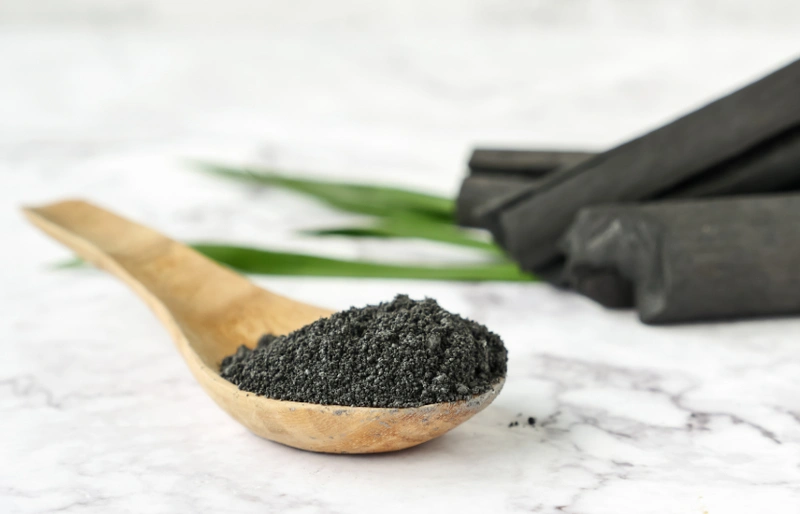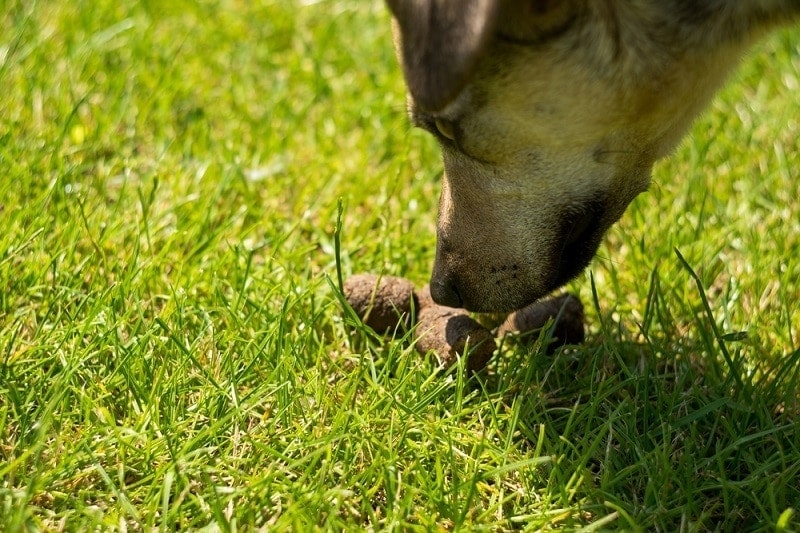Activated Charcoal for Cats: Info, Pros & Cons (Vet Answer)
Updated on

Click to Skip Ahead
Cats ingesting a toxin is an emergency that requires an immediate trip to the veterinarian. This is because hydrogen peroxide, a potential choice to induce vomiting in dogs from home, also known as an emetic, is dangerous and ineffective in cats and should never be used. This means helping a cat after toxin ingestion relies on treatments in a veterinary clinic.
Another complicating problem for cats and toxins is that even in a vet clinic, the medication commonly used to induce emesis in dogs, apomorphine, is also not safe for cats. A different medication, dexmedetomidine, can be used to get a cat to vomit back up a toxin, but it doesn’t always work.
Treating cats for toxins can, therefore, often rely on giving something called activated charcoal. What is activated charcoal, you ask? Read on, and we’ll tell you all about it!
What Is Activated Charcoal?
Activated charcoal is a liquid substance known as an adsorbent. It has a highly porous, high surface area that allows it to bind to many toxins and other compounds to different degrees.
Even if a veterinarian can induce vomiting in a cat after ingesting a toxin, the length of time since ingestion can significantly affect how much of the toxin is removed by doing this. Even in a best-case scenario, when the toxin is brought back up within 30 minutes of ingestion, on average, about 75% of the toxin is brought up, leaving 25% behind to still affect the cat.
After emesis, or for cats that couldn’t vomit (or ingested something that isn’t safe to bring back up or are no longer alert enough to safely vomit without aspirating stomach contents), activated charcoal can be used to bind up and make inactive some of the toxins already in the intestinal tract. It works best with certain toxins and, when used within an hour of ingestion, can be hard to give to cats, so it is not always used, but it serves an important role in treating toxins when needed.

How Is Activated Charcoal Given?
Activated charcoal is given by mouth and must be the liquid form, not the tablet or capsules you can sometimes find at the store.
Cats are usually given activated charcoal via a syringe though you can imagine they don’t often make this easy. In some cases, cats will have something called a nasogastric tube placed when they come in for an emergency toxin ingestion. This tube runs through the nose directly to the stomach and allows a veterinarian to empty their stomach or give food as needed. If this is placed, it can also be used to give activated charcoal without hassle.
Depending on the toxin, activated charcoal may be given once, or it may be given every 4–8 hours for up to 2 days.
What Is Activated Charcoal Given For?
Activated charcoal is given to bind up toxins to keep the body from absorbing them from the GI tract. While it is useful in most toxins, there are some that it doesn’t bind to well enough to be helpful, so a veterinarian will use knowledge of the toxin and how long ago it was ingested to decide whether to give it.
While difficult to give to cats and therefore sometimes avoided, it can still be especially useful in cats that were not able to vomit to bring back up what toxin they ingested.

Potential Side Effects of Activated Charcoal
While generally considered very safe, there are some side effects to monitor for in cats that have been given activated charcoal.
- Electrolyte imbalances: Risks of this are lowered if the cat is properly hydrated before being given activated charcoal.
- Aspiration pneumonia: Activated charcoal should not enter the lungs, and cats without a gag reflex or not mentally alert should not be given activated charcoal as that raises the risk of aspiration.
- Ileus concerns: If given to cats whose GI tract motility has stopped (ileus), toxins bound to the activated charcoal can become unbound as it sits in the GI tract, which can lead to later signs of toxicity.
- Masking melena: Activated charcoal is a deep black-colored liquid and will turn feces black also. The problem is that toxins that cause GI bleeding cause something called melena, a black, tarry stool, and the presence of melena is often how veterinarians know that a GI bleed is present. Giving activated charcoal can therefore delay the diagnosis of a GI bleed by masking this sign, which can be dangerous.
Pros & Cons Summary of Using Activated Charcoal in Cats
- Effective at detoxifying most toxins
- Useful for cats that did not vomit to remove the toxin from their stomach
- Affordable
- Serious side effects are unlikely
- Not able to bind all toxins
- Cannot be used in cats with GI stasis (ileus) or toxins likely to cause ileus
- Difficult to give
- Limited efficacy more than an hour after ingestion in most toxins
- Repeated dosing may be required
- Can also inactivate other medications
FAQ
Can I give my cat activated charcoal?
Since the exact dosing of activated charcoal is important, not all poisoned cats should be given activated charcoal, it doesn’t work with all toxins, and the readily available over-the-counter activated charcoal products are tablets and capsules that aren’t effective, so you shouldn’t give your cat activated charcoal. It is important to bring a cat straight to a veterinarian after toxin ingestion has been identified, and activated charcoal can be given by the veterinary team if needed.

Can activated charcoal help with lily poisoning in cats?
Yes, it can. Depending on when the ingestion happened and how sick the cat is, it may not be the treatment a veterinarian chooses to use.
Conclusion
Activated charcoal is a useful detoxifying agent for cats in many situations. Though it is best given by a veterinarian, it is generally considered very safe and is very effective at inactivating many toxins. If your cat has eaten anything toxic or poisonous, it is safest to bring them straight to a veterinarian, as the faster a cat is treated after ingesting a toxin, the more effective the treatment is.
Featured Image Credit: Momentum studio, Shutterstock














